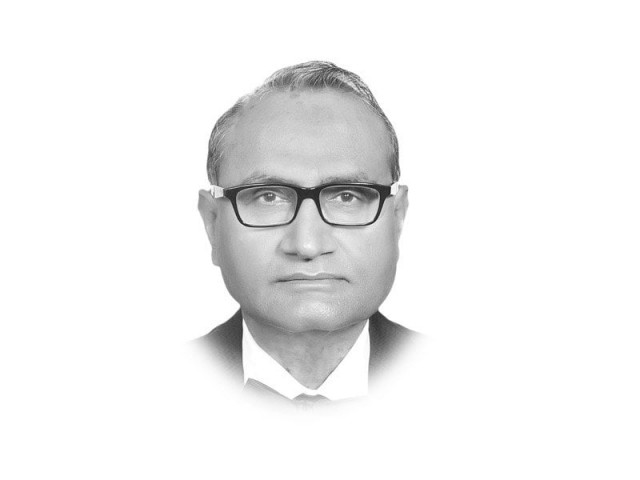Budgets of the backward
The budget ought to be judged by the allocations for education, health and local governance

pervez.tahir@tribune.com.pk
The seventh National Finance Commission (NFC) award went some distance towards increasing their shares in the pie by recognising backwardness and area to be factors in allocating resources. In addition, Balochistan was allowed its share in the projected rather than the actually collected taxes and K-P was given one per cent of the divisible pool to cope with the burden imposed by the war on terror. In the case of Balochistan, the payment of the development surcharge on natural gas with effect from July 1, 2002 was reworked and a maximum of Rs10 billion was to be paid in five equal installments by the federal government in grants. The recently presented budgets have to be viewed in this context.

In K-P, the budget for 2015-16 estimates total receipts of Rs487.9 billion. The province’s own receipts are only 11 per cent, with the balance coming from federal transfers (76 per cent), foreign assistance (10 per cent) and capital receipts (three per cent). A total current expenditure of Rs313 billion leaves Rs174.9 billion for development. With expenditure and receipts balanced, there is no room for supporting the federal deficit by showing a surplus. The revised estimate of the development budget for the outgoing year is only 6.6 per cent less than the budget estimate, showing that the bulk of the spending took place in the last quarter.
However, the budget ought to be judged by the allocations for education, health and local governance, the major planks of the PTI development strategy. Elementary, secondary and adult education and literacy functions have been fully devolved to the local level. Rs88.3 billion have been allocated in the budget against the revised estimate of Rs75 billion in the current budget. Development budget at Rs16 billion is lower against the revised estimate of Rs21.3 billion. With the addition of higher education, the total allocation for education in the budget is 24.6 per cent — not as high as the PTI’s platform requires. In health, the promised devolution of mother and child centres, basic health units and hospitals below the district level have not yet been devolved. A total allocation of Rs42.4billion constitutes a mere 8.7 per cent of the budget. The provincial local finance commission award is still under discussion. The white paper makes the slavish statement that “the province is blessed to have significant foreign assistance to finance specific development projects”.
The analysis of the Balochistan budget is constrained by the lack of detailed information on its official website. According to media coverage, its size is Rs244 billion with Rs54.5 billion for development. The financing includes very little of its own revenue. Education receives Rs40.9 billion, the largest share (16.8 per cent) and health Rs15.4 billion. Like Punjab, the major claimant in the development budget is infrastructure, taking away nearly half of it. There is a gap of Rs26 billion between expenditure and receipts, and very little of the province’s own receipts to finance it. It seems the enhanced share in the NFC resources still keeps Balochistan a deficit province. The general sales tax on services has quickly become the largest source of tax revenue in other provinces, but the base is too small in the geographically large and demographically sparse Balochistan. Its real resource base — natural resources — is a bone of contention between the federation and the province.
Published in The Express Tribune, June 19th, 2015.
Like Opinion & Editorial on Facebook, follow @ETOpEd on Twitter to receive all updates on all our daily pieces.















COMMENTS
Comments are moderated and generally will be posted if they are on-topic and not abusive.
For more information, please see our Comments FAQ